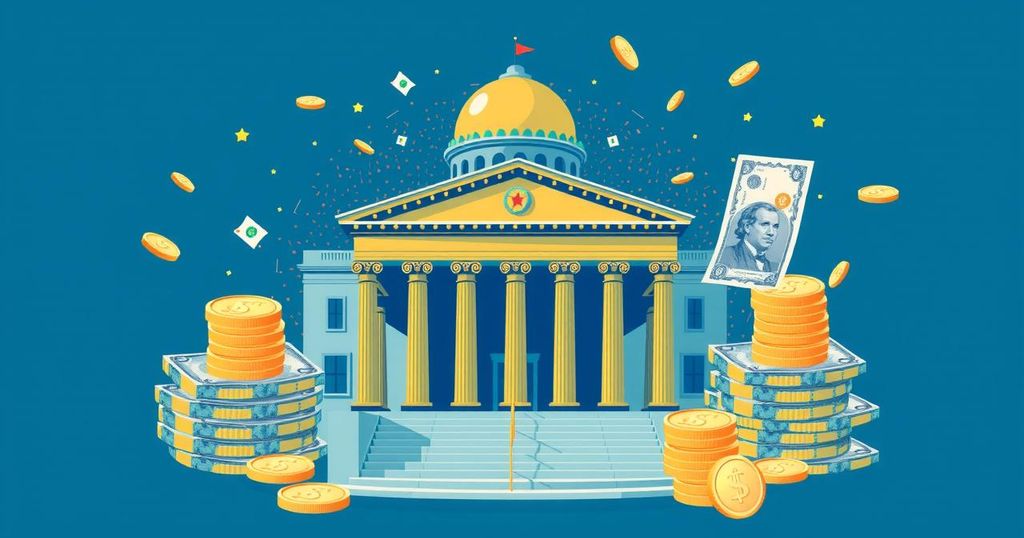Argentina’s Congress Approves New IMF Loan for Economic Stability
Argentina’s Congress has approved President Javier Milei’s request to negotiate a new IMF loan to stabilize the economy by enhancing foreign currency reserves and addressing debt obligations, despite ongoing public protests against austerity measures.
Argentina’s Congress has granted President Javier Milei authorization to pursue a new loan agreement with the International Monetary Fund (IMF), adding to the existing $44 billion debt. On March 11, Milei requested approval for a 10-year loan aimed at enhancing the central bank’s foreign currency reserves and facilitating upcoming debt payments. While the specific amount of the potential loan remains undisclosed, the loan marks Argentina’s 22nd bailout from the IMF despite previous debt defaults.
The legislation necessitates approval from both houses of Congress for IMF funds, although support from only one is sufficient to proceed. The lower house, the Chamber of Deputies, voted in favor of the loan, with 129 votes for, 108 against, and six abstentions, enabling Milei to advance the negotiations. The President’s minor libertarian party has formed strategic alliances in Congress to promote its austerity measures.
The approval came amidst protests near the legislature against Milei’s austerity policies and IMF negotiations. Rodolfo Celayeta, a 73-year-old retiree participating in the protests, expressed concerns, stating, “Every time something is agreed with the IMF, things get worse for us.” The protests on this occasion were larger yet more peaceful compared to the previous week, which resulted in injuries between police and demonstrators.
Milei asserts that securing the new IMF loan is critical to addressing national debt and combating inflation, described as a persistent challenge for the nation. Argentina experiences one of the highest inflation rates globally, yet recent measures to curb public spending have resulted in a reduction from 211 percent year-on-year in 2023 to 66 percent currently. Additionally, the government has initiated discussions with the IMF regarding a new “extended fund facility” (EFF) to restructure debt obligations stemming from a previous agreement sanctioned under former President Mauricio Macri.
This recent loan is pivotal, as it aims to refinance the largest loan ever issued by the IMF to Argentina in 2018, amounting to $44 billion.
The Argentine Congress has enabled President Javier Milei to negotiate a new IMF loan, vital for addressing the country’s substantial debts and combating continuous inflation. While the vote reflects legislative support, public discontent persists amid austerity measures. The implications of this loan could significantly impact Argentina’s economic landscape, especially considering its history of IMF engagement.
Original Source: www.news-expressky.com




Post Comment